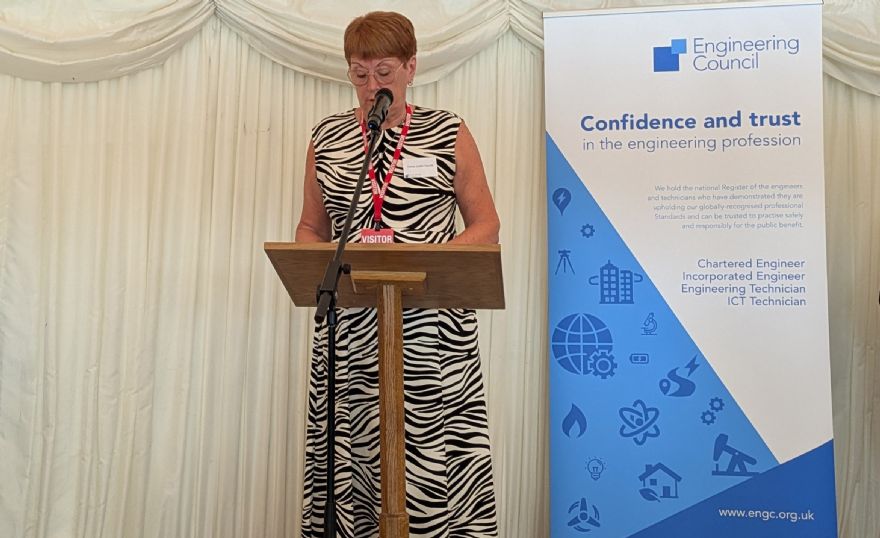
The official launch of a new Standard for building safety was held last week at the House of Lords at an event hosted by the Earl of Lindsay. The new UK Standard for Professional Engineering Competence and Commitment contextualised for Higher-Risk Buildings (UK-SPEC HRB) has been developed by the
Engineering Council in response to recommendations made in Dame Judith Hackitt’s independent review of building regulations and fire safety, ‘Building a Safer Future’, which was commissioned by the UK Government in the aftermath of the tragic Grenfell Tower Fire in 2017.
UK-SPEC HRB was developed, in collaboration with professional engineering institutions and expert volunteers, to assess the competence and commitment of individual engineers and technicians working on higher-risk buildings in the UK. Based on the UK Standard for Professional Engineering Competence and Commitment (UK-SPEC) the new Standard is tailored for engineers and technicians working in the built environment, particularly on the design, construction, maintenance, and operation of higher-risk buildings.
It incorporates the criteria from BS 8670 and sets out a sector-specific competence framework consisting of a core document and Discipline Annexes. Demonstrating competence could involve registration against the core framework only, or a combination of the Discipline Annexes: Fire Engineering, Structural Engineering, Building Services Engineering and Facade Engineering.
As the keynote speaker, Dame Judith (pictured above) highlighted why it is important to have assured competence of those working on higher-risk buildings and that this must be centred on professionalism. She said: “people who will uphold high standards of professional conduct themselves and call out those who undermine that in any way.”
Dame Judith also emphasised that this launch is very much the end of the beginning of the process. The real work now is for engineering institutions to promote the new Standard with their members and strongly encourage people to go through the process. She stressed that wider industry must be informed about the new Standard and the benefits of being able to prove that buildings have been designed and constructed by demonstrably competent people.
Public safety at its coreA welcome and overview of the importance of regulation was given by Lord Lindsay, chair of the UK Accreditation Service (UKAS), followed by an address by Professor John Chudley, chair of the Engineering Council in which he described UK-SPEC HRB as a framework that reinforces professional accountability with public safety at its core.
A speech was also delivered by Sandra Ashcroft on behalf of the Building Safety Regulator, who welcomed the new standards as an invaluable tool for identifying and engaging truly competent professionals who can meet the stringent safety requirements of HRBs. Trustees and staff from the Engineering Council joined with representatives from the professional engineering community to celebrate this milestone in working towards improved public safety.
Paul Bailey, Engineering Council CEO, said: “We are very proud to be launching this new Standard today which presents a significant milestone in our continuing work with the professional engineering community to ensure public safety in the built environment. We hope the tragedy of the Grenfell Tower fire and the sad loss of 72 lives will never be seen again. UK-SPEC HRB will provide a means for those engineers and technicians working in the built environment, particularly on the design, construction, maintenance, and operation of higher-risk buildings, to become professionally registered. This is the first step however and it is our hope that UK-SPEC HRB is embraced and championed by the sector and the wider engineering profession, and that the Standard, and the Register of those individuals assessed against it, will support the continuing improvement of public safety across the sector.”
With the Government’s commitment to building 1.5 million homes over this Parliament which are of high quality, and safe now and in the future, the Engineering Council believes its HRB Register and UK-SPEC HRB is a key example of how this ambition can be achieved through a pipeline of suitably qualified professionals for the housing and construction market with the right skills. It welcomes the professional engineers who have already achieved registration, and says it is committed to building on this momentum.